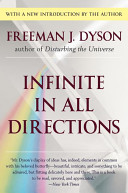Humanity is Not the Purpose of the Universe, It is Humanity's Purpose
Notes:
Folksonomies: humanism
Taxonomies:
/religion and spirituality (0.503984)
/family and parenting/children (0.484286)
/religion and spirituality/christianity (0.464664)
Keywords:
scientific humanism (0.961881 (positive:0.441227)), scientific humanist (0.815590 (negative:-0.231127)), humanity (0.686232 (positive:0.221140)), Christian fundamentalists (0.599891 (negative:-0.229238)), philosophy standing (0.551117 (positive:0.372861)), different meanings (0.539980 (positive:0.589812)), Christian faith (0.537636 (positive:0.372861)), correct definition (0.535315 (positive:0.410187)), scientific materialism (0.534965 (positive:0.589812)), magnificent beginning (0.533854 (positive:0.601362)), honest answer (0.528610 (positive:0.288406)), final goal (0.525718 (neutral:0.000000)), better grasp (0.525151 (positive:0.386981)), Small children (0.518619 (positive:0.386981)), God (0.432511 (positive:0.205258)), Purpose (0.384956 (negative:-0.229238)), stepdaughter (0.377830 (negative:-0.445814)), astonishment (0.372603 (positive:0.296342)), grown-ups (0.363228 (positive:0.386981)), propaganda (0.360000 (negative:-0.229238)), somebody (0.359487 (positive:0.299395)), opposition (0.359160 (positive:0.372861)), phrase (0.358729 (negative:-0.229238)), alternatives (0.347895 (negative:-0.481546)), Universe (0.347480 (neutral:0.000000)), lifetime (0.345805 (negative:-0.606222)), Christianity (0.344038 (neutral:0.000000)), version (0.343580 (neutral:0.000000)), family (0.342590 (negative:-0.300702)), science (0.342578 (positive:0.299395))
Entities:
five years:Quantity (0.010000 (neutral:0.000000))
Concepts:
Secularism (0.974374): dbpedia | freebase
Universe (0.914071): dbpedia | freebase
Atheism (0.904024): dbpedia | freebase | opencyc
Question (0.864377): dbpedia | freebase
Christianity (0.830479): dbpedia | freebase | opencyc
Humanism (0.808822): dbpedia | freebase
Religion (0.791724): dbpedia | freebase | opencyc
Judaism (0.725172): website | dbpedia | freebase | opencyc





